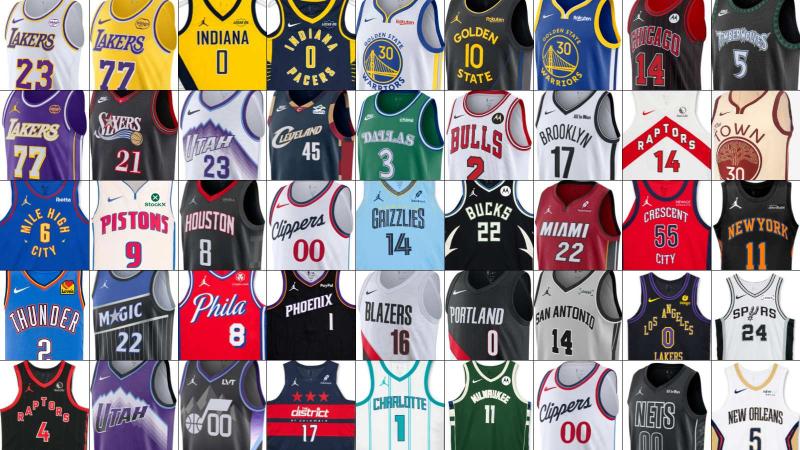Are Football Teams Milking Fans with Too Many Kit Releases?
- Increased Kit Releases: Football teams have significantly increased the number of kit releases per season, evolving from one kit in the early 1990s to as many as five or six in 2024, driven by commercial strategies.
- Financial Impact on Fans: The constant release of new kits creates financial strain, particularly for families who feel pressured to purchase the latest kits for their children, although purchasing kits is ultimately an optional expense.
- Kit Prices vs. Ticket Prices: Despite the increase in kit releases, ticket prices have remained relatively stable, particularly in Germany where kit release is at its most extreme, with the cheapest season ticket for a club like Bayern Munich often costing the same as a new authentic jersey.
In the early 1990s, many football teams did not release new kits every season, and when they did, it was often just one. However, things began to change by the 2000s, with teams introducing two kits per season, and eventually, three kits became the norm. Fast forward to 2024, and many teams are releasing as many as four or even five new kits per season—Bayern Munich and Borussia Dortmund released five, Barcelona likely four, and Sporting Lisbon at least six.
Evolution of Kit Releases
Bayern will have more kits in a single season than they had in four seasons 30-35 years ago.
In the past, football teams often held onto their kits for multiple seasons. For example, Bayern Munich had only three different kits over four years in the early 1990s. Today, they’ve released 20 different kits in just four years, reflecting how much the landscape has changed. Today, teams release more kits as part of an increasingly commercialized strategy that drives constant demand from fans.
Five kits is now the new standard for Bayern and Dortmund, Germany's two biggest teams
An essential aspect of the evolution of football kits is that most major teams no longer have just one version of their kits. Brands now offer more expensive authentic jerseys, which enables them to generate additional revenue, facilitating costly sponsorship deals.
Are Fans Being Taken Advantage Of?
So, are football clubs milking fans with all these kit releases? For fans who feel the need to purchase every new kit—or even just two per season—the answer is likely yes. The constant stream of new designs can feel like a deliberate attempt to push supporters to spend more. However, it's important to note that buying a new kit is optional. For many, it's still a choice whether or not to purchase the latest shirt, especially as older kits still do the job.
Pressure on Families
The situation is a bit different for families with children. Kids often feel social pressure to have the latest kit, making it more of a necessity than an option for parents. This can create a significant financial strain, as keeping up with new releases becomes harder when teams are putting out four or five kits a season.
With kits, teams mainly "milk" those fans who want to be milked - many also only want to support their team when buying new kits
Interestingly, despite the increase in kit releases, ticket prices have remained relatively stable, at least in Germany (where teams release more kits than in all other big European countries). For example, Bayern Munich's cheapest season ticket costs 170 euros, which is about the same as the price you pay for the authentic kit with a player on the back.
170 Euro: Bayern's cheapest season ticket costs just almost the same than a single authentic kit (155 Euro)
The ticket situation for clubs like FC Barcelona, Real Madrid, and many Italian teams is totally different from that in Germany—fans are charged enormous amounts for tickets here.
At the end of the day, at last with kits, you cannot simply say that teams are "milking" fans with kits - they are mainly "milking" those fans with kits who want to be milked. Buying a kit is optional, unlike paying for match tickets or watching your team live via TV.
Given the increase in kit releases, do you think teams are taking advantage of fans, or is it simply part of modern football’s evolution? Would you still buy every new kit your team releases, or is the growing number of releases too much? Let us know in the comments below.





















